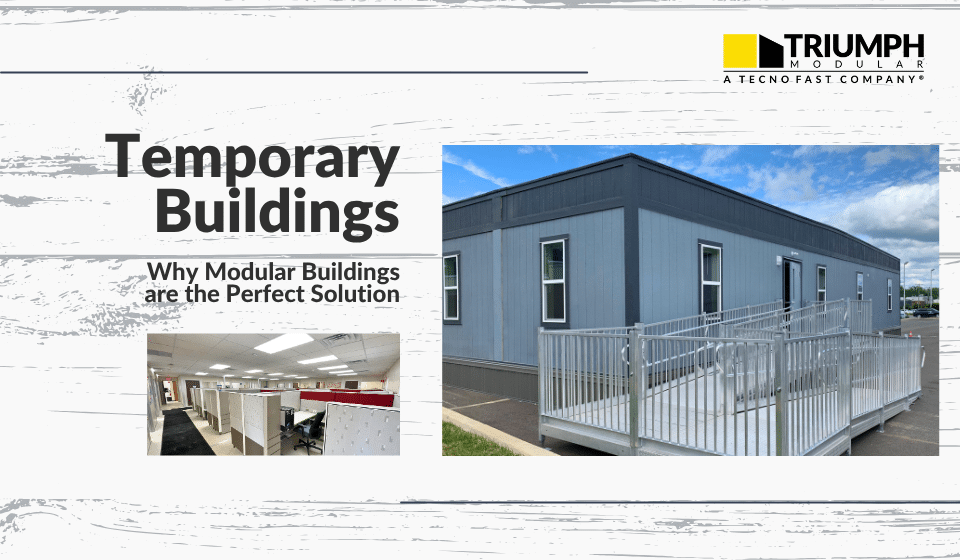Are you searching for an affordable housing option without sacrificing quality? Meet modular construction, the game-changer in producing cost-effective, quality homes quickly. This article spotlights the affordability of modular affordable housing projects, delving into why and how they save money and presents tangible examples of their success.
Key Takeaways
- Modular construction in affordable housing is advantageous due to its speed, efficiency, adaptability, and cost-effectiveness. It enables the creation of quality homes with minimal environmental impact.
- Triumph Modular case studies, such as LExHab Farm View and the Acton Housing Development Project, demonstrate successful applications of modular construction that meet budgetary constraints, reduce disruption, and achieve sustainability certifications.
- The future of modular construction in affordable housing is promising with ongoing technological advancements and policy reforms, despite challenges like building code complexities and upfront financing.
Introduction to Modular Construction for Affordable Housing:
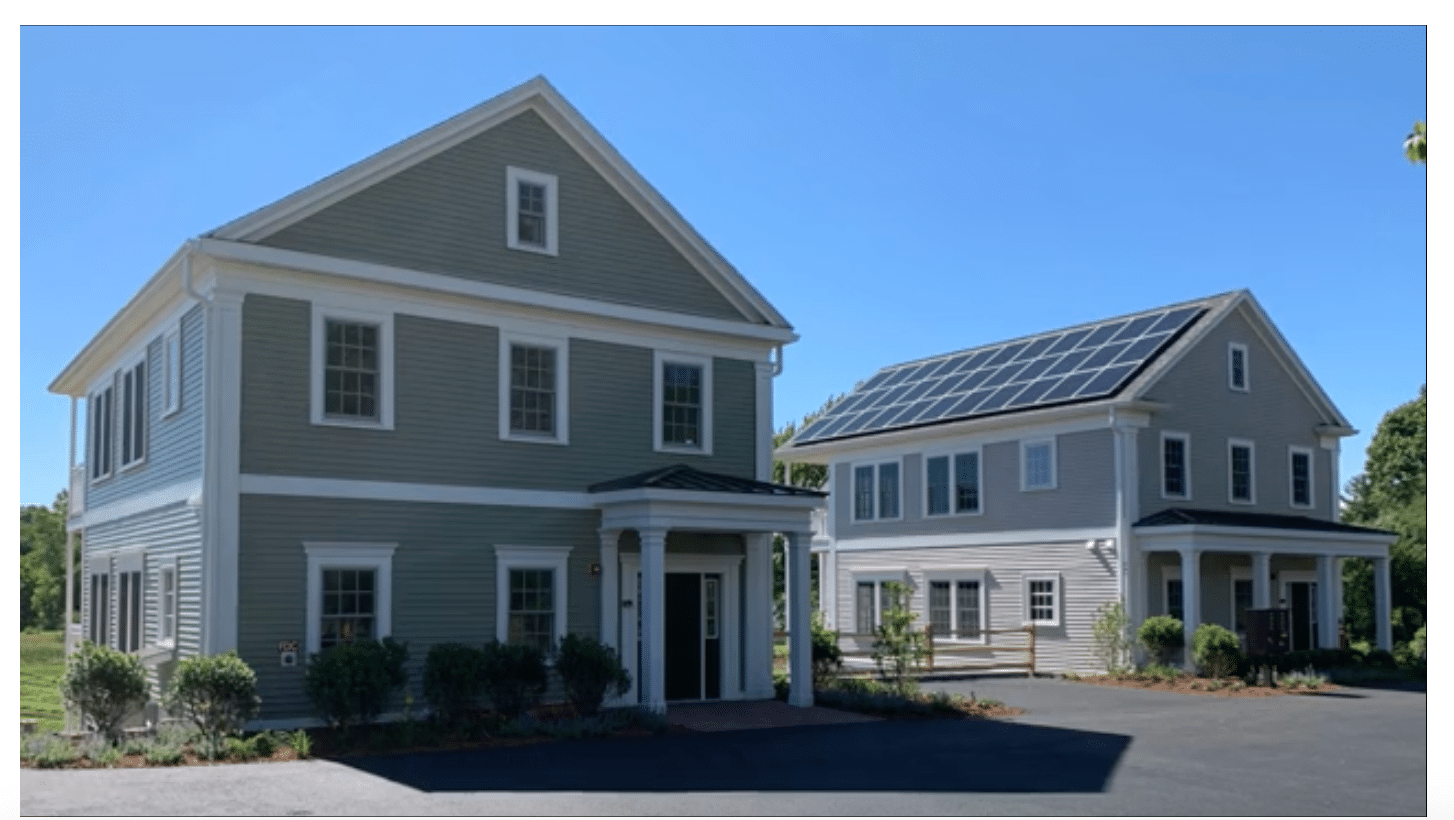
Modular construction, a process where buildings are constructed off-site in a controlled factory environment, is reshaping the landscape of affordable housing. These prefabricated units are then transported to their final location, where they are assembled to form complete structures. What attributes of this method make it an ideal solution to the challenges of affordable housing?
This innovative approach to building combines speed, quality, and adaptability, offering an efficient solution to the pressing demand for affordable housing units. Modular homes cater to a variety of needs, from low-cost housing to inclusionary affordable housing programs, all while maintaining the integrity and aesthetic appeal of traditional urban housing. This revolutionary approach to community development meets the needs of both eco-conscious urban developers and low-income renters.
Advantages of Modular Construction for Affordable Housing:
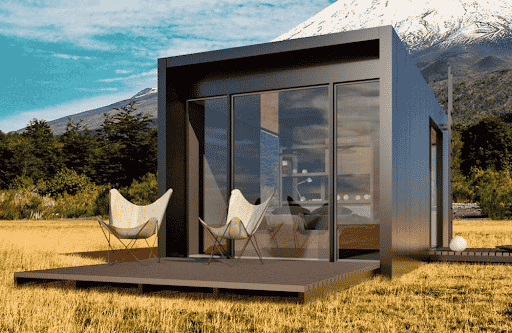
The biggest advantage is its cost-effectiveness. By streamlining the construction process and reducing on-site labor, modular housing projects minimize financial outlays, making the dream of affordable homes a reality for a broader range of people.
The clock doesn’t lie, and neither does the rapid pace at which modular homes can be constructed. With the clockwork precision of factory production, the weather delays and on-site complications that plague traditional construction are significantly reduced, ensuring that housing projects meet urgent needs swiftly and reliably. High-quality materials and strict factory oversight mean that these homes are not just built faster, but also better, with a level of durability that stands the test of time.
The modular construction process allows for quicker turnaround times—most of the construction takes place off-site in a controlled factory environment. Compare this to traditional construction methods, where the entire process takes place on-site, delays are common, and inclement weather can halt the construction process entirely.
Flexibility and scalability are the cherries on top of the modular construction sundae. As housing demands evolve, so too can modular housing projects, adapting in size and function to meet changing needs. Furthermore, we cannot overlook sustainability. Modular homes lead the way in eco-friendly construction, advocating for reduced waste and energy-efficient designs. It’s a holistic approach that not only provides a roof but does so with a minimal environmental footprint.
Case Studies and Success Stories: Case Study 1: LExHab Farm View:
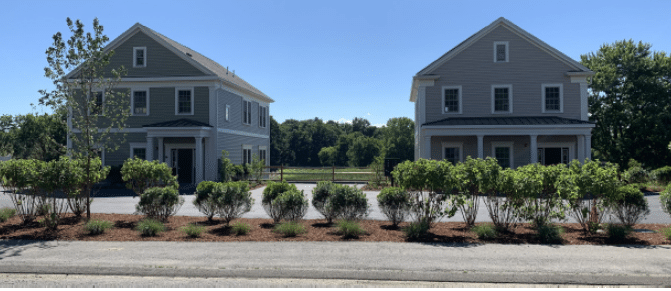
The LExHab Farm View project showcases Triumph Modular’s proficiency in delivering affordable housing that surpasses expectations. Originally intended for traditional construction, budget constraints led to a pivot towards modular solutions. The outcome was two colonial-style buildings housing six residential units, nestled next to verdant farmland in Lexington.
Modular may not always be the least expensive option for construction, but if design changes are kept to a minThe success of LExHab Farm View was a collaborative triumph. It involved public engagement and review, and the satisfaction resonated not just among the new homeowners but also throughout the team that brought this vision to life. This project exemplifies the potential of modular construction, demonstrating how economically viable and community-focused projects can coexist.
Project URL: https://www.triumphmodular.com/project/lexhab-farmview/
Case Study 2: Acton Housing Development Project
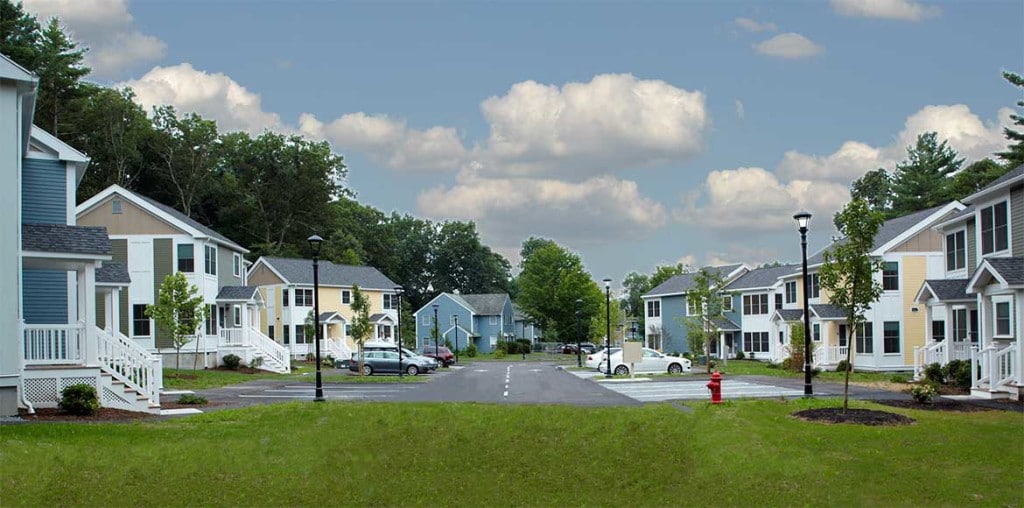
The Acton Housing Development Project further cements Triumph Modular’s reputation as a leader in affordable housing solutions. Comprising six two-story buildings with a total of twelve living units, the project was a beacon of sustainability, achieving the coveted LEED Gold Certification for its environmentally conscious design and construction.
Guided by principles of sustainability, the Acton project integrated features such as energy-efficient windows, an advanced insulation package, and water-saving plumbing fixtures to set new standards in eco-friendly living. From the outset in September 2012 to completion in July 2013, the project showcased the efficiency of modular construction, with buildings ready for occupancy in less than a year.
Acton residents now enjoy high-quality, affordable housing that not only meets their needs but also contributes positively to the environment. The project serves as an inspiring example of how modular construction can offer rapid, cost-effective, and sustainable housing solutions, profoundly impacting the lives of local residents and the broader community.
Project URL: https://www.triumphmodular.com/project/acton-housing-authority-permanent-modular-construction/
Technical and Safety Considerations:
Triumph Modular constructs its buildings to last, using materials and techniques that guarantee durability. But it’s not just about standing strong; these homes also adhere to the highest safety standards. From fire safety to structural integrity and accessibility, modular buildings meet or exceed all necessary regulations.
Quality control is a cornerstone of the Triumph Modular process, with rigorous checks throughout manufacturing and assembly guaranteeing that each modular unit meets strict standards of excellence. Compliance is equally paramount, with each project meticulously aligning with local building codes, housing regulations, and environmental standards, leaving no stone unturned in the pursuit of perfection.
Residents can rest assured that their modular home is safe, secure, and sustainably equipped to support a lifetime of memories. It’s this unwavering commitment to technical precision and safety that sets modular construction apart as a reliable choice for affordable housing.
Future Trends in Modular Affordable Housing Construction:
Looking ahead at the future of modular construction in affordable housing, we see a horizon full of potential. Technological advancements, such as smart building systems and more energy-efficient designs, are poised to amplify the already significant benefits of modular homes. The industry is on the cusp of embracing design innovations that not only enhance the functionality but also the aesthetics of modular housing, ensuring that these structures are as pleasing to the eye as they are to the wallet./p>
Although many modular affordable housing projects are built to mimic traditional construction, we’ve also seen some housing projects that go in an entirely new and innovative direction. For example, our parent company, Tecno Fast, has the Tiny Cabin: An example of the “tiny house movement” that provides an innovative way for people to simplify their lives and reduce expenses.
Policymakers and funding institutions are beginning to take note, recognizing the role that modular construction can play in addressing the housing crisis. Efforts to standardize building codes and streamline state-level approval processes are underway, potentially unlocking new efficiencies and scaling the adoption of modular solutions across urban development landscapes..
However, challenges remain for low-income families, such as overcoming transportation logistics, navigating the intricate web of state and local building codes, and simplifying the complexities of upfront financing, which can be a financial burden. Yet, with the promise of reduced construction costs, expanded workforce diversity, and a smaller environmental footprint, the future of modular affordable housing construction and housing assistance, including rental assistance, is not just bright—it’s transformative..
Learn More About Modular Affordable Housing Projects From Triumph Modular
With over four decades of experience, we’ve accumulated a wealth of knowledge on modular construction used for affordable housing.
For more information, check out our modular housing page. There, you’ll find more information on the advantages of modular, student housing, temporary housing, and more.


